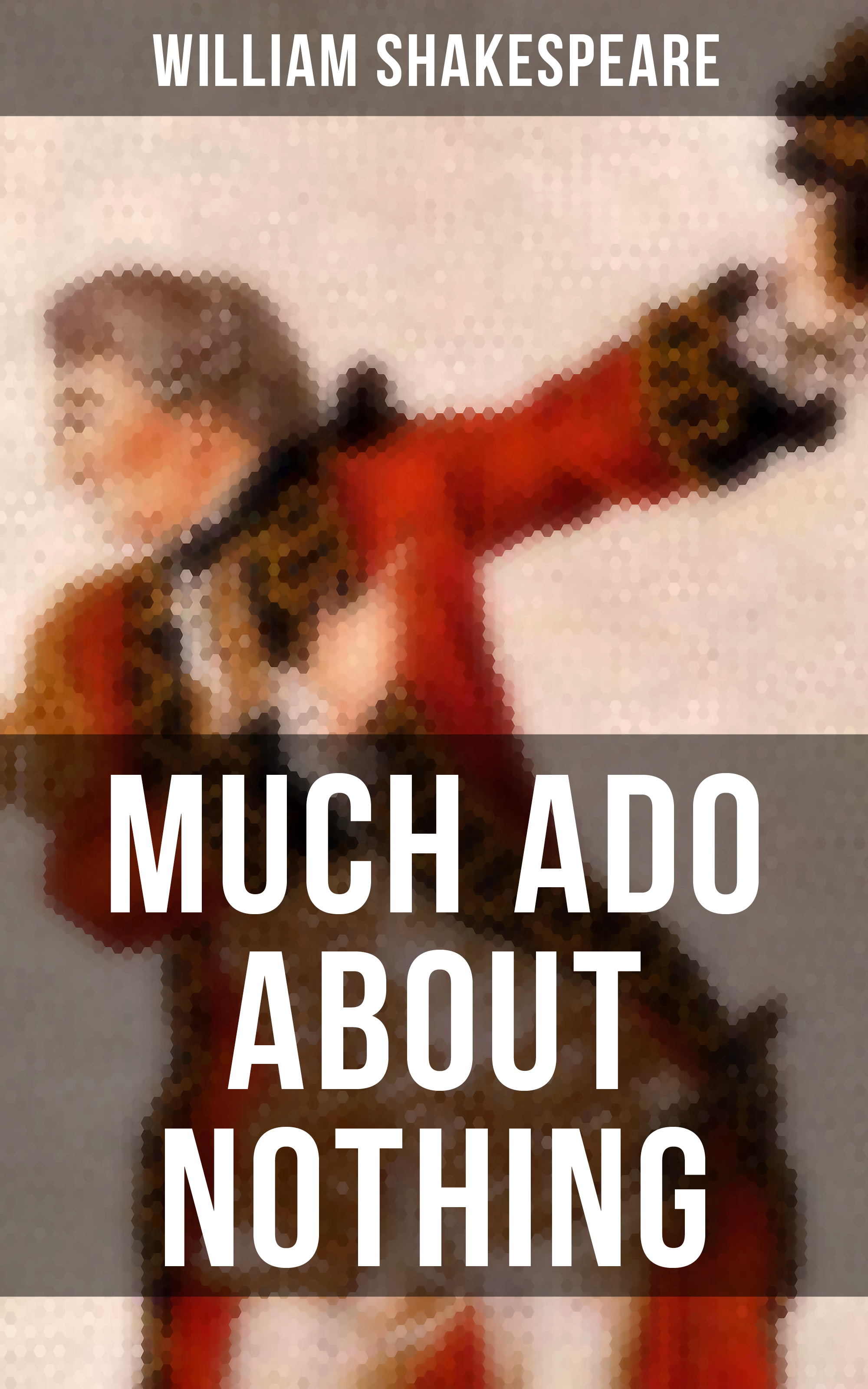What should I speak?
I stand dishonour’d, that have gone about
To link my dear friend to a common stale.
LEONATO.
Are these things spoken, or do I but dream?
DON JOHN.
Sir, they are spoken, and these things are true.
BENEDICK.
This looks not like a nuptial.
HERO.
True! O God!
CLAUDIO.
Leonato, stand I here? Is this the prince?
Is this the prince’s brother?
Is this face Hero’s? Are our eyes our own?
LEONATO.
All this is so; but what of this, my lord?
CLAUDIO.
Let me but move one question to your daughter,
And by that fatherly and kindly power
That you have in her, bid her answer truly.
LEONATO.
I charge thee do so, as thou art my child.
HERO.
O, God defend me! how am I beset!
What kind of catechizing call you this?
CLAUDIO.
To make you answer truly to your name.
HERO.
Is it not Hero? Who can blot that name
With any just reproach?
CLAUDIO.
Marry, that can Hero:
Hero itself can blot out Hero’s virtue.
hat man was he talk’d with you yesternight
Out at your window, betwixt twelve and one?
Now, if you are a maid, answer to this.
HERO.
I talk’d with no man at that hour, my lord.
DON PEDRO.
Why, then are you no maiden.
Leonato, I am sorry you must hear: upon my honour,
Myself, my brother, and this grieved count,
Did see her, hear her, at that hour last night,
Talk with a ruffian at her chamber-window;
Who hath indeed, most like a liberal villain,
Confess’d the vile encounters they have had
A thousand times in secret.
DON JOHN.
Fie, fie! they are not to be nam’d, my lord,
Not to be spoke of;
There is not chastity enough in language
Without offence to utter them. Thus, pretty lady,
I am sorry for thy much misgovernment.
CLAUDIO.
O Hero! what a Hero hadst thou been,
If half thy outward graces had been plac’d
About thy thoughts and counsels of thy heart!
But fare thee well, most foul, most fair! farewell,
Thou pure impiety, and impious purity!
For thee I’ll lock up all the gates of love,
And on my eyelids shall conjecture hang,
To turn all beauty into thoughts of harm,
And never shall it more be gracious.
LEONATO.
Hath no man’s dagger here a point for me?
[HERO swoons.]
BEATRICE.
Why, how now, cousin! wherefore sink you down?
DON JOHN.
Come, let us go. These things, come thus to light,
Smother her spirits up.
[Exeunt DON PEDRO, DON JOHN and CLAUDIO.]
BENEDICK.
How doth the lady?
BEATRICE.
Dead, I think! help, uncle! Hero! why, Hero! Uncle! Signior
Benedick! Friar!
LEONATO.
O Fate! take not away thy heavy hand:
Death is the fairest cover for her shame
That may be wish’d for.
BEATRICE.
How now, cousin Hero?
FRIAR.
Have comfort, lady.
LEONATO.
Dost thou look up?
FRIAR.
Yea; wherefore should she not?
LEONATO.
Wherefore! Why, doth not every earthly thing
Cry shame upon her? Could she here deny
The story that is printed in her blood?
Do not live, Hero; do not ope thine eyes;
For, did I think thou wouldst not quickly die,
Thought I thy spirits were stronger than thy shames,
Myself would, on the rearward of reproaches,
Strike at thy life. Griev’d I, I had but one?
Chid I for that at frugal nature’s frame?
O! one too much by thee. Why had I one?
Why ever wast thou lovely in mine eyes?
Why had I not with charitable hand
Took up a beggar’s issue at my gates,
Who smirched thus, and mir’d with infamy,
I might have said, ‘No part of it is mine;
This shame derives itself from unknown loins?’
But mine, and mine I lov’d, and mine I prais’d,
And mine that I was proud on, mine so much
That I myself was to myself not mine,
Valuing of her; why, she—O! she is fallen
Into a pit of ink, that the wide sea
Hath drops too few to wash her clean again,
And salt too little which may season give
To her foul-tainted flesh.
BENEDICK.
Sir, sir, be patient.
For my part, I am so attir’d in wonder,
I know not what to say.
BEATRICE.
O! on my soul, my cousin is belied!
BENEDICK.
Lady, were you her bedfellow last night?
BEATRICE. No, truly, not; although, until last night I have this twelvemonth been her bedfellow.
LEONATO.
Confirm’d, confirm’d! O! that is stronger made,
Which was before barr’d up with ribs of iron.
Would the two princes lie? and Claudio lie,
Who lov’d her so, that, speaking of her foulness,
Wash’d it with tears? Hence from her! let her die.
FRIAR.
Hear
